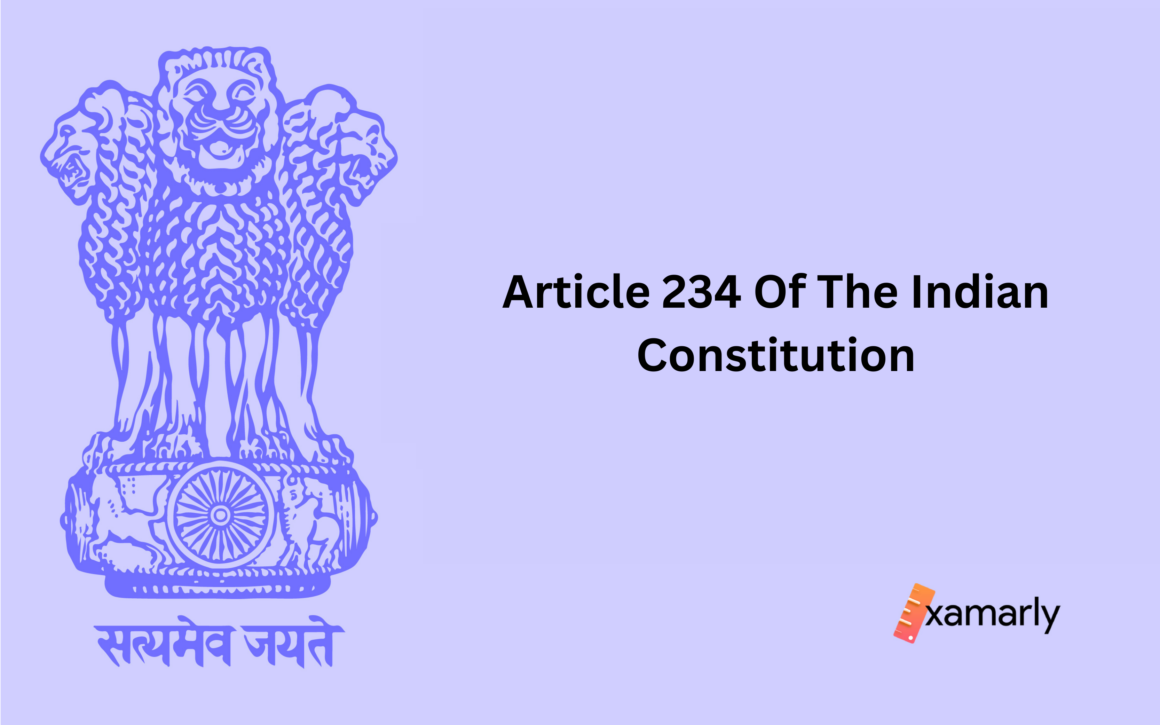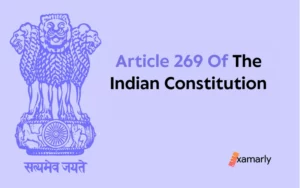Article 233 of the Indian Constitution falls under Chapter Six. It talks about the appointment of the district judges.
It also lays down the fundamental parameters for a person in order to become a district judge.
Let us delve deep into Article 233 of the Indian Constitution and grasp all the concepts present in it.
- Article 233 Of The Indian Constitution – In Detail
- Article 233A Of The Indian Constitution – In Detail
- Clause (b) – As it is & Explained
- Summing Up
- FAQs
- Who appoints district judges in a state?
- Can district judges be transferred from one district to another within a state?
- Can acting district judges be appointed in case of temporary absence or vacancy?
- Is the appointment of district judges subject to any conditions?
- Which local governments work at the district level?
Article 233 Of The Indian Constitution – In Detail
We will break down all the clauses and the sub-clauses in Article 233 of the Indian Constitution to have a deeper understanding.
Related – Article 248 Of The Indian Constitution
Clause 1 – As it is & Explained
(1) Appointments of persons to
be, and the posting and promotion of, district judges in any State shall be made
by the Governor of the State in consultation with the High Court exercising
jurisdiction in relation to such State.
The first clause of Article 233 of the Indian Constitution says that the Governor of a State, in collaboration with the High Court exercising jurisdiction therein, may appoint people to the position of district judge and shall have the authority to transfer and promote district judges within that State.
Clause 2 – As it is & Explained
(2) A person not already in the service of the Union or of the State shall
only be eligible to be appointed a district judge if he has been for not less than
seven years an advocate or a pleader and is recommended by the High Court
for appointment.
The second clause lays down the eligibility criteria in order to be a District Judge.
According to the second clause of Article 233 of the Indian Constitution, anyone who isn’t currently serving in the Union or a State government agency is ineligible for appointment as a district judge unless he has served in such capacity for at least the high court recommends someone who has been an advocate or pleader for seven years as scheduled.
Article 233A Of The Indian Constitution – In Detail
Article 233A of the Indian Constitution can be understood as an extension of the protocols that have to be followed in the process of establishing jurisdiction in the district court.
It also reflects on some of the aspects of the appointment of the judges.
Let us break down each and every clause present in this Article and analyze them for a better understanding.
Clause (a) – As it is & Explained
(a) (i) no appointment of any person already in the judicial service
of a State or of any person who has been for not less than seven years an
advocate or a pleader, to be a district judge in that State, and
The first sub-clause of clause (a) of Article 233A says that a current member of the judiciary may not be appointed. A citizen or resident for at least seven years, either of a state district judge in that state, one must be either an advocate or a pleader, and
(ii) no posting, promotion or transfer of any such person as a
district judge,
made at any time before the commencement of the Constitution (Twentieth
Amendment) Act, 1966, otherwise than in accordance with the provisions
of article 233 or article 235 shall be deemed to be illegal or void or ever to
have become illegal or void by reason only of the fact that such
appointment, posting, promotion or transfer was not made in accordance
with the said provisions;
The second sub-clause of the first clause of Article 233A says that no such person can be posted, promoted, or moved as a district judge made at any time before the Constitution (Twentieth Amendment) Act 1966 came into effect.
In a way that doesn’t follow the rules of Articles 233 or 235 shall be considered illegal or null and void have become illegal or null and void only because there was not a proper appointment, posting, promotion, or transfer with those rules in consideration.
Clause (b) – As it is & Explained
(b) no jurisdiction exercised, no judgment, decree, sentence or order
passed or made, and no other act or proceeding done or taken, before the
commencement of the Constitution (Twentieth Amendment) Act, 1966
by, or before, any person appointed, posted, promoted or transferred as a
district judge in any State otherwise than in accordance with the
provisions of article 233 or article 235 shall be deemed to be illegal or
invalid or ever to have become illegal or invalid by reason only of the
fact that such appointment, posting, promotion or transfer was not made
in accordance with the said provisions.]
Clause (b) of Article 233 A says that no person appointed, posted, promoted, or transferred as a district judge in any State otherwise than in accordance with the provisions of Article 233 or Article 235 shall be deemed to have exercised jurisdiction or passed or made a judgement, decree, sentence, or order, or done or commenced any other act or proceeding, prior to the commencement of the Constitution (Twentieth Amendment) Act, 1966.
Summing Up
We can conclude from Article above that Article 233 of the Constitution of India deals with the appointment and control of district judges in the states. It states that the appointment of district judges in a state shall be made by the state’s governor, in consultation with the state’s High Court.
The article also provides for the transfer of district judges from one district to another within the state, and for the posting of district judges to other states.
FAQs
Who appoints district judges in a state?
District judges in a state are appointed by the Governor of the state, in consultation with the state’s High Court.
Can district judges be transferred from one district to another within a state?
Yes, district judges can be transferred from one district to another within a state, as per the provisions of Article 233 of the Constitution.
Can acting district judges be appointed in case of temporary absence or vacancy?
Yes, the provisions of Article 233 allow for the appointment of acting district judges in case of temporary absence or vacancy. Also, the President has the role of appointing dually qualified judges.
Is the appointment of district judges subject to any conditions?
As can be seen, the governor has extensive latitude to designate district judges under Clause (1) of Article 233. The only thing that is needed is that the High Court be consulted. The governor may appoint district judges from wherever, so long as that requirement is met.
Which local governments work at the district level?
District-level local administration is carried out by the Zilla Parishad, the third tier of India’s decentralized Panchayati raj system. It wasn’t until 1992 that India formally established its Panchayati raj system. Municipal, taluka, and district governments are all run by elected officials.






